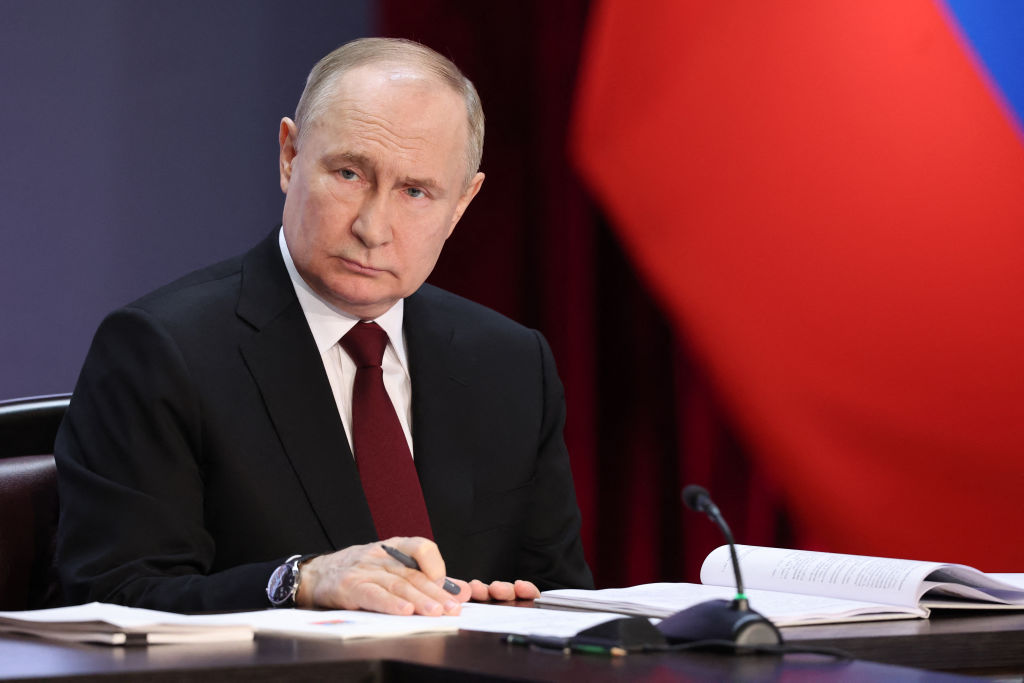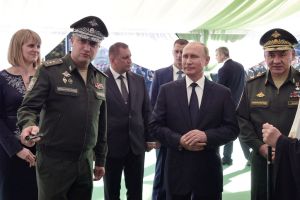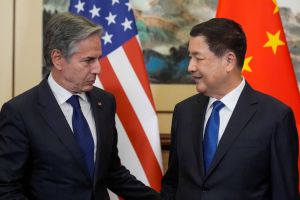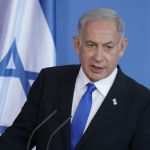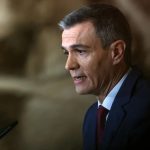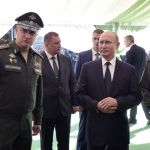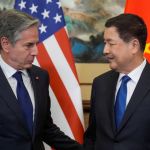One thing the French seem to be learning (or, given their history, re-learning) is that the Russians are always up for a scrap. A ministerial phone call between the two countries has led to a diplomatic spat such that a stung Emmanuel Macron is now claiming that Moscow plans to target this summer’s Paris Olympics — and he’s probably right.
On Wednesday, French defense minister Sébastien Lecornu had a rare phone conversation — the first since 2022 — with his Russian counterpart Sergei Shoigu. Paris claims that, following the Crocus City terrorist attack in Moscow last month, the call was wholly about the scope for anti-terrorist cooperation, and their willingness to share what Macron later described as “useful information… on the origin and organization of this attack.” But what Paris may disingenuously regard as an altruistic expression of solidarity was inevitably interpreted by Moscow as a challenge to its (admittedly implausible) official line, that the attack was carried out by jihadists, but in a plot organized by Kyiv.
In the current circumstances, Moscow has no reason to hold back
Shoigu may well not believe this conspiracy theory, but he is nonetheless required to advance it with all the determination at his disposal — and the French must, surely, have known this. Indeed, he may well have regarded this as a trap, considering Macron’s recent decision to re-invent himself as a hawk, floating the notion of deploying combat troops to Ukraine and calling Russia’s defeat “indispensable” for Europe’s security. Besides, according to French sources, Lecornu also called on Russia to end to its “manipulation” of the incident to frame Kyiv, adding that “France had no information linking the attack to Ukraine.”
Just how receptive did Paris think the Kremlin would be to this reiteration of the Western perspective? Kremlin officials tend to work on the principle that Western overtures are disingenuous at best, deceptive at worst. With NATO foreign ministers meeting this week to reaffirm their support for Ukraine and Kremlin spokesman Dmitry Peskov stating that relations between Russia and the West “have now slipped to the level of direct confrontation,” they were unlikely to be in an open-minded mood.
On the call, Shoigu apparently struck back, not just re-iterating the Kremlin’s warnings about the dire consequences of direct intervention in the war (“it will create problems for France itself”), but also hinting that Paris may have had some role in the terrorist attack: “The Kyiv regime doesn’t do anything without a nod from its Western backers. We hope that, in this case, the French secret services aren’t behind it.”
A bristling Macron described this suggestion as “ridiculous” and the Russians’ comments as “bizarre and threatening.”
What, you might wonder, did he expect? To beat his breast one moment, and then extend a small olive twig the next is perhaps the diplomatic equivalent of the “strategic ambiguity” on which he is so keen. The Kremlin never reacts well to such ambiguity, though: if in doubt, it will see conspiracy and hypocrisy.
So, of course, the Russians have spun the whole incident to their advantage, not least by claiming that the two ministers also discussed the scope for talks on the war, something Paris hurriedly denied. However, it again did so in terms ambiguous enough — there’s that word again — for the Kremlin to make more hay. By stating that “France neither accepted nor proposed anything of the sort,” it allowed the Russians to suggest that it did not entirely reject a Russian proposal, either. There is almost certainly nothing at all in this, but we should expect Moscow to make whatever it can of any opportunity.
France can expect an intensification of the Kremlin’s existing political warfare campaigns against it, from cyberattacks to subversion. While Russian disinformation outlets did not invent the groundless rumor that Macron’s wife, Brigitte, is a transsexual, for example, they have been enthusiastically amplifying them to undercut her husband’s attempts to bolster his tough guy credentials.
Macron’s particular concern now, though, is the impending Olympics. In response to a question as to whether he was feared Russia would target them, he said he “had no doubt” they would, including through information operations.
Of course, they will. Such events are at once bids by the host nation to accrue soft power and the focus of global attention. Any embarrassing scandals, any technical glitches, any unexpected blunders will be magnified as much by the legitimate media as Russian bots and trolls. In the current circumstances, with Macron cosplaying the scourge of the bear, and Russian athletes barred from the Games unless they can prove their opposition to the war (so far, only eight have), Moscow has no reason to hold back. Quite the opposite.
So while the French security services will be doing their utmost (and they have a reputation for ruthless competence), Macron is having to resort to appeals to his people to be “determined, vigilant” and to “have confidence in ourselves.” However, as a European security official morosely observed, “he could scarcely have done more to encourage the Russians to have a crack at the Games.”
This article was originally published on The Spectator’s UK website.
